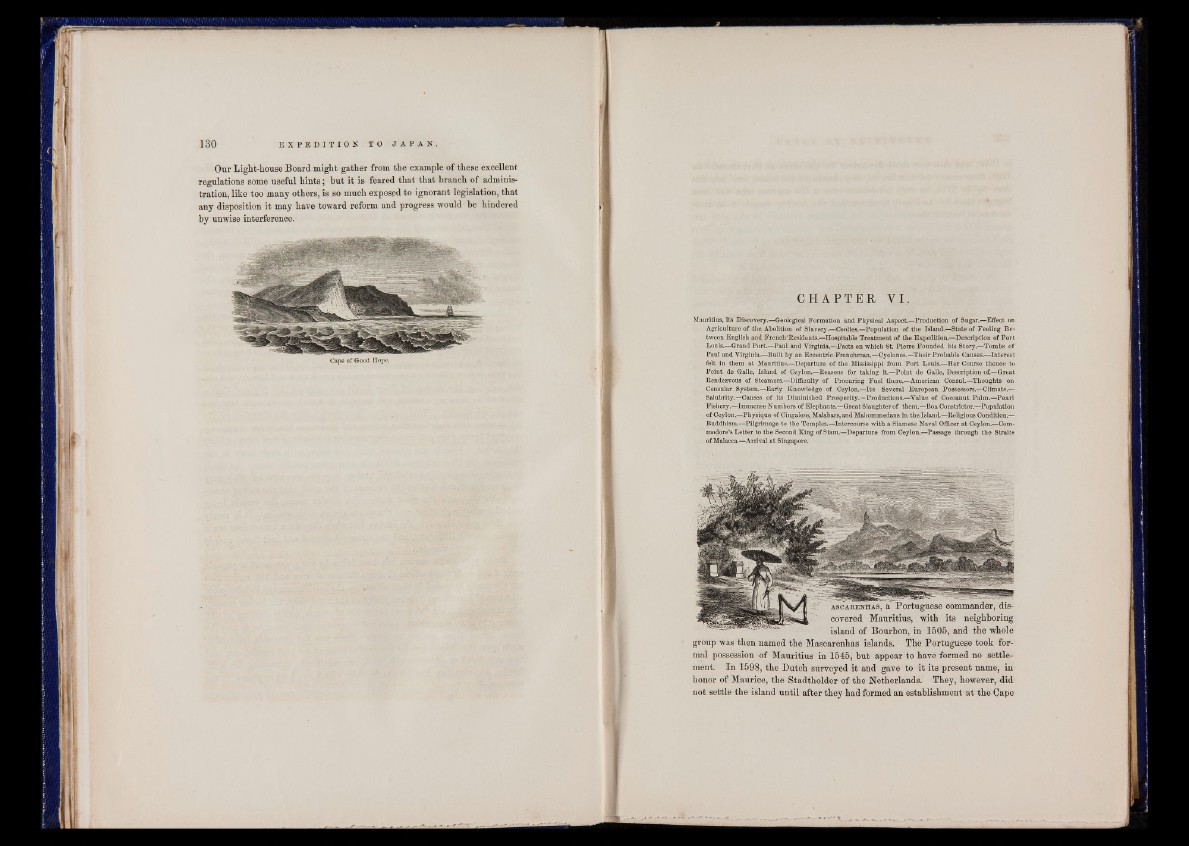
Our Light-house Board might gather from the example of these excellent
regulations some useful hints ; hut it is feared that that branch of administration,
like too many others, is so much exposed to ignorant legislation, that
any disposition it may have toward reform and progress would he hindered
hy unwise interference.
Cape of Good Hope.
CHAPTER VI.
Mauritius, its Discovery.-—Geological Formation and Physical Aspect—Production of Sugar.—Effect on
Agriculture of the Abolition of Slavery.—Coolies.—Population of the Island.—State of Feeling Between
English and French‘Residents.—Hospitable Treatment of the Expedition.—Description of Port
Louis.—Grand P o r t—Paul and Virginia.—Facts on which S t Pierre Founded his Story.—Tombs of
Paul and Virginia.—Built by an Eccentric Frenchman.—Cyclones.—Their Probable Causes.—Interest
felt in them at Mauritius.—Departure of the Mississippi from Port Louis.—Her Course thence to
Point de Galle, Island of Ceylon.—Reasons for taking i t—Point de Galle, Description of.—Great
Rendezvous of Steamers.—Difficulty of Procuring Fuel there.—American Consul.—Thoughts on
Consular System.—Early Knowledge of Ceylon.—I ts Several European Possessors.—Climate.—
Salubrity.—Causes of its Diminished Prosperity.—Productions.—Value of Cocoanut Palm.—Pearl
Fishery.—Immense Numbers of Elephants.—Great Slaughter of them.—Boa Constrictor.—Population
of Ceylon.—Physique of Cingalese, Malabars, and Mahommedans in the Island.—Religious Condition.—
Buddhism.—Pilgrimage to the Temples.—Intercourse with a Siamese Naval Officer at Ceylpn.—Commodore’s
Letter to the Second King of Siam.—Departure from Ceylon.—Passage through the Straits
of Malacca.—Arrival at Singapore.
commander, discovered
Mauritius, with its neighboring
island of Bourbon, in 1505, and the whole
group was then named the Mascarenhas islands. The Portuguese took formal
possession of Mauritius in 1545, but appear to have formed no settlement.
In 1598, the Dutch surveyed it and gave to it its present name, in
honor of Maurice, the Stadtholder of the Netherlands. They, however, did
not settle the island until after they had formed an establishment at the Cape